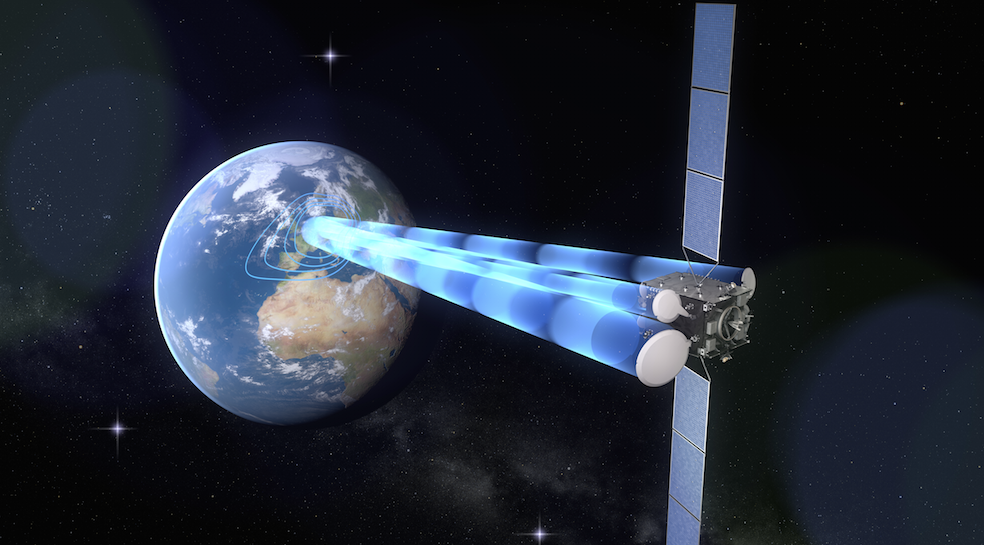ArianeGroup has been awarded the contract to supply a chemical propulsion system for Germany’s Heinrich Hertz experimental telecommunications satellite (H2Sat).
ArianeGroup has been awarded the contract to supply a chemical propulsion system to place Germany’s Heinrich Hertz experimental telecommunications satellite (H2Sat) into geostationary orbit and to provide attitude control during its 15-year service life. ArianeGroup will supply a bi-propellant propulsion system comprising a 400N apogee kick motor and twelve 10N thrusters.
ArianeGroup is responsible for the propulsion design, development, production, testing, and integration of the system as a whole. The thrusters are to be developed and manufactured at the group's Lampoldshausen site, while the associated fuel tanks will be supplied by the Bremen plant.
The overall propulsion system/satellite integration will also take place at the Lampoldshausen facility, where recently-developed Shape Memory Alloy (SMA) valves, required for pressure system passivation, will be deployed for the first time.
The Heinrich Hertz programme is managed by the German Aerospace Center (DLR) Space Administration on behalf of the Federal Ministry for Economic Affairs and Energy (BMWi) with the participation of the Federal Ministry of Defense. The prime contractor is OHB System in Bremen, which manages satellite development, production and launch.
The main objective of the mission is to test and validate new satellite communications technologies in orbit, as well as to conduct a series of scientific and technical communications experiments. Using a separate military payload on board the satellite, another aspect of the mission will be to provide communications for the German Federal Armed Forces.
In addition to a chemical propulsion system, the platform also includes an electrical propulsion system that will take over part of the attitude control function throughout the mission. The satellite is scheduled for launch towards the end of 2021 on an Ariane 5 launcher.

